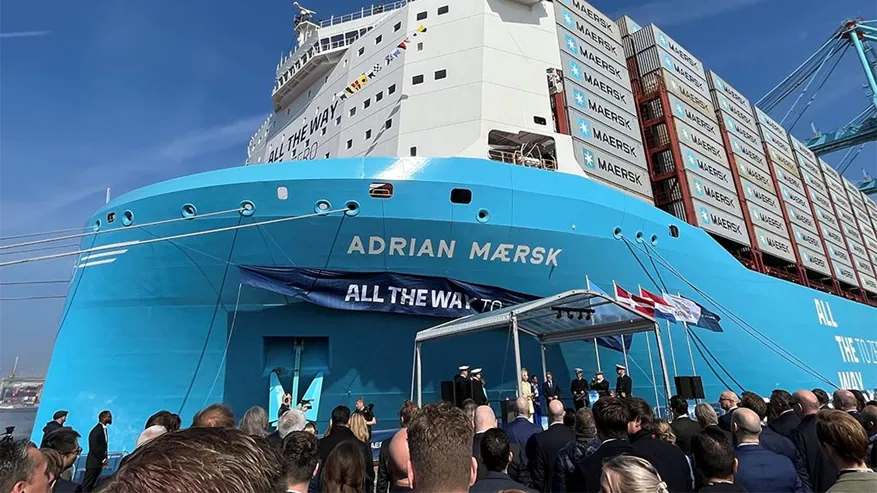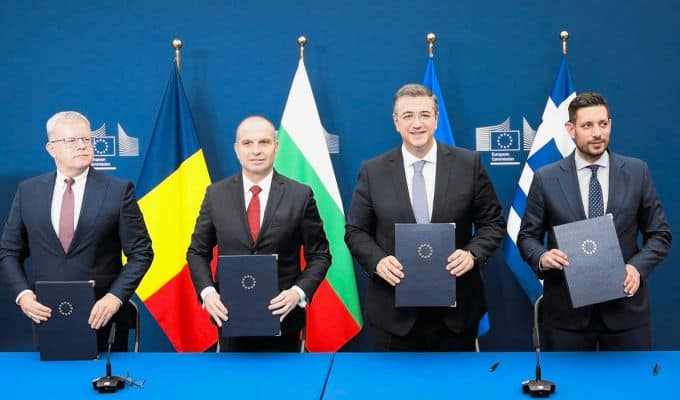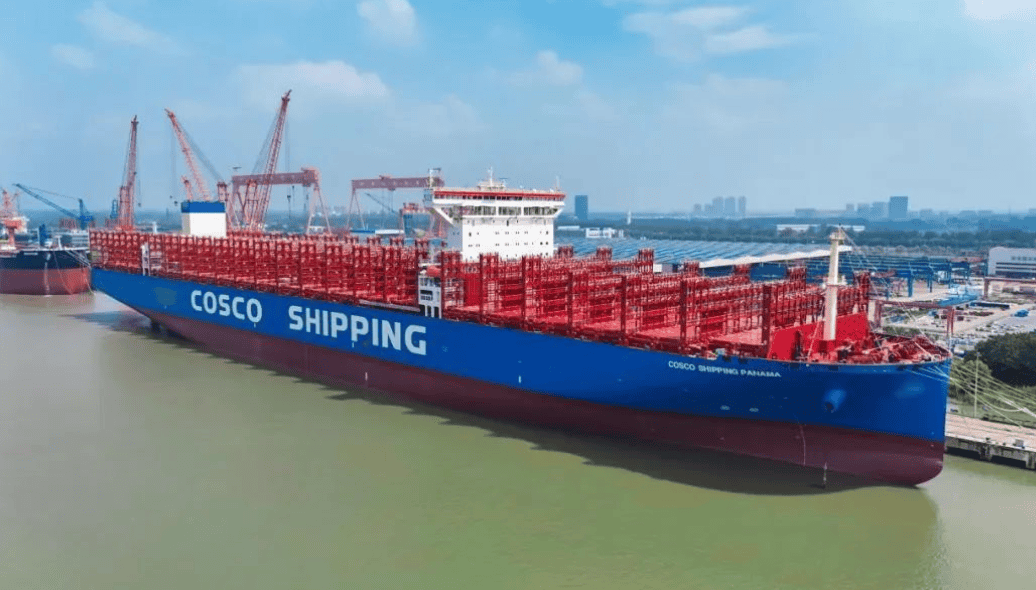Today, A.P. Moller – Maersk celebrated the naming of the “Adrian Mærsk”, a dual-fuel methanol-powered vessel, at the APM Terminals Maasvlakte II in Rotterdam. Stephanie Pullings Hart, Executive Vice President and Chief Operating Officer (COO) at Nestlé, is the godmother of the container ship. Nestlé, a key customer, ships 100% of its ocean freight with Maersk through the ECO Delivery Ocean product, which utilizes alternative fuels to reduce greenhouse gas (GHG) emissions. These alternative fuels cut Nestlé’s cargo-related GHG emissions by over 80% compared to conventional fossil fuels and represent a significant financial commitment from Nestlé, which has been using ECO Delivery Ocean since 2023. Dual-fuel vessels demonstrate that the technology for the shipping industry’s energy transition is already available. The key now lies in the decisions that International Maritime Organization (IMO) member states will make next month in London. Regulations that support the adoption of fuels that significantly reduce GHG emissions are urgently needed. At the same time, ambitious customers like Nestlé play a crucial role as close partners in the green transformation of shipping and logistics, a goal that would not be achievable without their support, said Karsten Kildahl, Chief Commercial Officer (CCO) at Maersk.
The “Adrian Mærsk” has a capacity of over 16,000 TEU (twenty-foot equivalent units) and will serve the Asia-Mediterranean trade route after completing its maiden voyage from Rotterdam. As part of Maersk’s new East-West network, it will contribute to the company’s ambition of ensuring schedule reliability above 90% once the new network is fully implemented. Maersk’s hub terminals, such as APM Terminals Maasvlakte II in Rotterdam, play a vital role in achieving this goal.
Dual-fuel vessels are key to Maersk’s decarbonization plans. Bio- and e-methanol can reduce GHG emissions by 65% to 90% compared to conventional fossil fuels, depending on the feedstock and production process. Maersk is also deploying dual-fuel vessels powered by liquefied methane, aiming to utilize bio- or e-methane as soon as possible. Given the global fuel demand, a combination of multiple alternative low-emission fuel technologies is essential to decarbonize the shipping industry.



